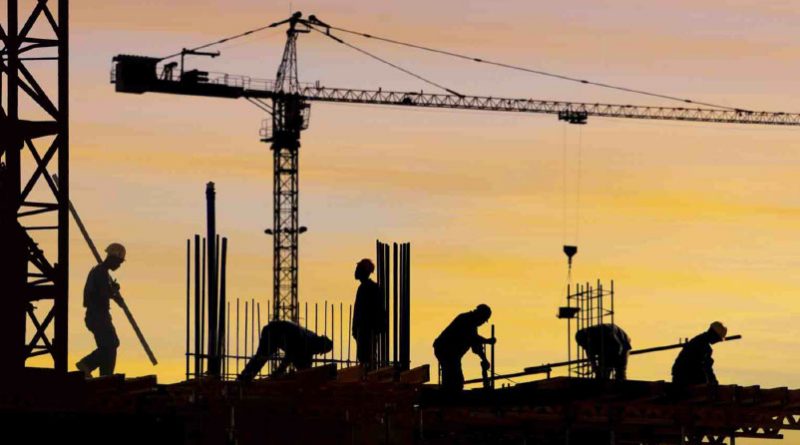Legislation requiring providers of building services to register with CIRI published
New legislation has just been published which puts the Construction Industry Register Ireland (CIRI) on a statutory footing.
The Bill aims to benefit consumers and the general public by giving those who engage a registered builder the assurance that they are dealing with a competent and compliant operator.
The legislation is committed to in Housing for All, the Government’s national plan for housing to 2030. Currently, entities providing building services can voluntarily register with CIRI, which has operated since 2014. Once the legislation is enacted, all entities providing building services will be required to register with CIRI.
CIRI was established by the Construction Industry Federation (CIF), which is expected to operate the statutory register. This is a similar model to that of registration for Registered Architects and Surveyors. Approximately 800 building and contracting entities are currently included on the register. When the register operates on a statutory footing, it’s expected that initially at least 5,000 entities will be required to register.
The requirement to register will apply to builders of both residential and non-residential buildings that are subject to the Building Regulations. Employees of such building firms will not be required to apply but sole traders will. Eligibility for registration can be achieved through qualifications, experience or a combination of both. The criteria required for registration will be clear and transparent and will be set out in regulations.
Once enacted, the statutory register is expected to help develop and promote a culture of competence, good practice and compliance with building regulations. The new measures will also address shadow economic activity in the construction sector and ensure fairer competition for compliant operators.
Commenting on the legislation, the Minister for Housing, Local Government and Heritage, Darragh O’Brien TD, said: “This legislation, promised under Housing for All, will help improve our housing system over the longer term. Everyone should be confident in the knowledge that their homes are built to the highest standards and that any professional services they use are also of a certain standard. Likewise, companies and people buying or renting commercial buildings should be able to expect that they are built by service providers of a certain standard. This legislation will ensure that the construction sector operates to the highest standard and that people have confidence in its workforce and practices.
“This Government is taking firm action on the issue of housing defects and the legacies of poor construction design, workmanship and materials. It is something which has impacted so significantly on the lives of so many of our people. By driving regulation in the construction sector, the State will ensure the mistakes of the past are not repeated and we have a more sustainable housing system and construction sector in the future,” the Minister concluded.
The Regulation of Providers of Building Works Bill 2021 can be viewed here.
The construction industry will require time to adapt to these new requirements. It is proposed that the first categories who will be required to register will be home builders and builders of non-residential buildings followed by the various trades.
It is envisaged that Builders can begin registering in 2023 and statutory registration will commence in early 2024 for these first categories.
Under the legislation, the CIRI will have a statutory Admissions and Registration Board who will be appointed by the Minister It will consist of a chairperson, nominated by the Minister, and 10 ordinary members 5 of whom will be nominated by the Minister. It will also have an Appeals Committee.
The Bill will also provide for the CIRI to receive complaints against registered builders to be made on a number of grounds, including complaints against an entity providing building services in a category in which they are not registered. The Bill provides for a range of proportionate sanctions to be imposed after investigation.
Housing for All commitments
Through Housing for All, the Government’s national plan for housing to 2030, the ‘Supporting the Four Pathways: enabling a Sustainable Housing System’ section contains a number of actions relating to building regulation. These include:
- 25.1: Embed compliance in the construction sector through Building Regulations and Building Control Regulations, including establishing registers of competent builders by placing the Construction Industry Register Ireland on a statutory footing
- 25.2: Examine the merits of the creation of an independent Building Standards Regulator to oversee building control nationwide and to act as custodian of the Building Control Management System
- 25.3: Re-establish the Building Regulatory Advisory Body
- 25.7: Address issues in relation to the Defective Concrete Blocks Grant Scheme
- 25.8: Ensure that the remediation fund for pyrite is fully drawn down
- 25.9: Examine the issue of defects in housing through the independent working group to identify the nature and scale of the problem having regard to the recommendations of the Joint Oireachtas Committee on Housing report, ‘Safe as Houses?’ (2017)
Current building control regulations
At present, the Building Control Regulations require owners, builders and registered construction professionals to demonstrate that the works or building concerned have been designed and constructed in compliance with Building Regulations.
The Building Control Acts (1990 to 2014) vest the powers of inspection, enforcement and prosecution in the 31 local authorities.
The legislation, when enacted will complement a number of key measures put in place in recent years to strengthen the arrangements for building control. These include:
- Statutory certification of design and construction by registered construction professionals and builders (Building Control Amendment Regulations (BCAR))
- The establishment of the National Building Control and Market Surveillance Office, which works with Building Control Authorities to promote a culture of compliance with the Building Regulations and market surveillance of construction products.

